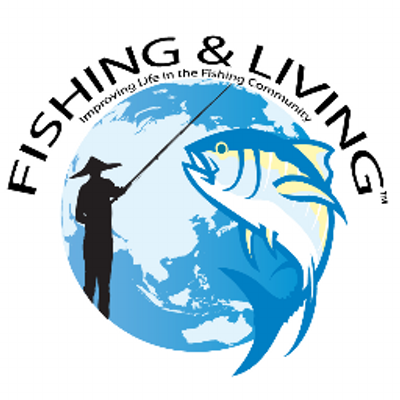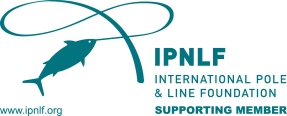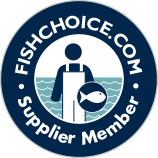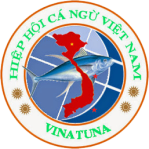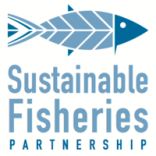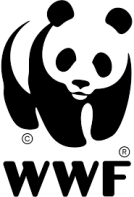About
May 2013
 After completing another Fishing & Living training and office setup on Ambon Island in Molucca (21-27 April), we now have 7 active Fishing & Living Enumerator Stations and Fishermen Livelihood Centers’ which accommodate port sampling activities by 25 F&L enumerators. Additionally, these offices are meeting points for the fishermen, the local government officials, the suppliers, traders and other interested parties.
After completing another Fishing & Living training and office setup on Ambon Island in Molucca (21-27 April), we now have 7 active Fishing & Living Enumerator Stations and Fishermen Livelihood Centers’ which accommodate port sampling activities by 25 F&L enumerators. Additionally, these offices are meeting points for the fishermen, the local government officials, the suppliers, traders and other interested parties.
About
April 2013
 Our team of trainers have just finished their third training for 2013. This time 4 new enumerators were hired and trained North of Ambon. The fishery here is highly artisanal and carried out on very small boats (<1 GT). Trips to sea are less than one day and usually a day’s catch for a fisherman comprises of 1-2 large tuna and several smaller individuals, usually skipjack tuna. The large tuna is sold directly to the export market and the small fish are sold locally.
Our team of trainers have just finished their third training for 2013. This time 4 new enumerators were hired and trained North of Ambon. The fishery here is highly artisanal and carried out on very small boats (<1 GT). Trips to sea are less than one day and usually a day’s catch for a fisherman comprises of 1-2 large tuna and several smaller individuals, usually skipjack tuna. The large tuna is sold directly to the export market and the small fish are sold locally.
The new enumerators have started collecting data and spreading the word on sustainability in the communities in which they are based.


About
March 2013
 The training of 6 new enumerators in East Nusa Tenggara is complete, addingl 4 active enumerators in Kupang and 2 in Maumere. The enumerators are now equipped and trained to gather in-depth data from unloading tuna vessels, specifically on catch composition and effort employed. Additionally, they have been coached in interview skills to gather data on the vessels’ interactions with endangered, threatened and protected species.
The training of 6 new enumerators in East Nusa Tenggara is complete, addingl 4 active enumerators in Kupang and 2 in Maumere. The enumerators are now equipped and trained to gather in-depth data from unloading tuna vessels, specifically on catch composition and effort employed. Additionally, they have been coached in interview skills to gather data on the vessels’ interactions with endangered, threatened and protected species.
About
March 2013
 The Fishing & Living team began a 1 week training of new enumerators for the implementation of our Port Sampling Program for 2 new landing sites in East Indonesia. A total of 6 enumerators will be trained to implement the “Port Sampling Protocol for Artisanal Handline Tuna”. The enumerators are from 2 sites in Nusa Tenggara Timor (NTT), namely; Kupang and Maumere. The topics covered in the training are: Basis sustainability, port sampling on target and bycatch, port sampling on endangered, threatened and protected species, fish identification and data entry. Team building and environmental awareness are important aspects of the training.
The Fishing & Living team began a 1 week training of new enumerators for the implementation of our Port Sampling Program for 2 new landing sites in East Indonesia. A total of 6 enumerators will be trained to implement the “Port Sampling Protocol for Artisanal Handline Tuna”. The enumerators are from 2 sites in Nusa Tenggara Timor (NTT), namely; Kupang and Maumere. The topics covered in the training are: Basis sustainability, port sampling on target and bycatch, port sampling on endangered, threatened and protected species, fish identification and data entry. Team building and environmental awareness are important aspects of the training.

The training event will result in 6 new enumerators who will be actively working from 2 newly established fishermen livelihood offices and will submit data to the IFish (developed by IMACS program of USAID) database for compilation and analysis.
The training of the enumerators and the establishment of the fishermen livelihood centers are a partial fulfillment of the work under the USAID grant entitled “Fishing and Living-Enhancement of Indonesian Handline Tuna Fishery: An Integrated Community-Based Approach to Sustainability”.
About
USAID has recognized the successful results of the Fishing and Living™ initiative and has awarded a grant to significantly expand its efforts. The program promotes sustainable fisheries and enhanced living conditions for fishing communities. These fisheries have gone through MSC pre-assessment and are engaged in a verified and active Fisheries Improvement Project (FIP) to provide certified sustainable tuna to Anova Food, LLC.
The grant will focus on the handline tuna fisheries in Indonesia. Funds will allow for the expansion of successful programs already implemented. These field programs include:
- setting up 6 additional field offices on new landing sites
- setting up centers that teach alternative livelihoods to fishermen, and reduce the total fishing fleet
- on-site training of data collectors for each new landing site
- on-site training of additional observers for data verification on the fishing vessels
- engagement of all stakeholders including suppliers, processors and the Indonesian fisheries ministry to discuss activities and compiled data
The most important step to reach sustainability is a comprehensive assessment of the health of the fish stock. Under this program, each landing site office collects data on total catch, catch composition, fish maturity, bait, and interactions with Endangered, Threatened or Protected (ETP) species.
The Fishing and Living™ program is a unique approach made possible through the collaborative efforts of Anova Food, LLC, the World Wildlife Fund (WWF), local and national governments, a host of other entities and individuals on-site and working in the communities, and of course, the fishermen themselves. The activities of the program are published on their web site at www.fishing-living.org in an effort to provide updates to all collaborating parties.
USAID grants are made possible by the generosity of the American people.
About
February 2013
 BESTTuna Program from Wageningen University of the Netherlands visited Fishing and Living site in Lombok to learn about initiative and also advise the Fishing and Living team regarding the update fisheries approach. The BESTTuna team members are Dr. Simon Bush and Dr. Megan Bailey.
BESTTuna Program from Wageningen University of the Netherlands visited Fishing and Living site in Lombok to learn about initiative and also advise the Fishing and Living team regarding the update fisheries approach. The BESTTuna team members are Dr. Simon Bush and Dr. Megan Bailey.
About
February 2013
 February 17-22: the Fishing & Living Team took a trip to Nusa Tenggara Timor (NTT) to survey 3 potential landing sites to expand the Port Sampling Program. This expansion program is being funded by the United States Agency for International Development (USAID). The sites assessed were Kupang, Larantuka and Maumere.
February 17-22: the Fishing & Living Team took a trip to Nusa Tenggara Timor (NTT) to survey 3 potential landing sites to expand the Port Sampling Program. This expansion program is being funded by the United States Agency for International Development (USAID). The sites assessed were Kupang, Larantuka and Maumere.

About
In February 2013, Fishing and Living Program will receive a grant from USAID to expand the Fishing and Living Program Data Collection and Observer Program to 6 remote small scale tuna fisheries sites in East Indonesia.
The program will complement the other previous sites of Lombok and Bone. With the support from local processor and Government of Indonesia and American people through USAID we will one step to support the strengthening of Indonesia tuna data for stock assessment.
About
The Fishing and Living Program team conducted a field survey to assess the possibility for data collection expansion within the province. The sites surveyed were Kupang, Larantuka and Maumere of East Nusa Tenggara.
With the support from the local Government Fisheries Services and local fish producers, we found good information in regard to the fisheries activities within the province. In 2013 we will be implementing Data Collection and Observer Program with the support of USAID IMACS Project.

